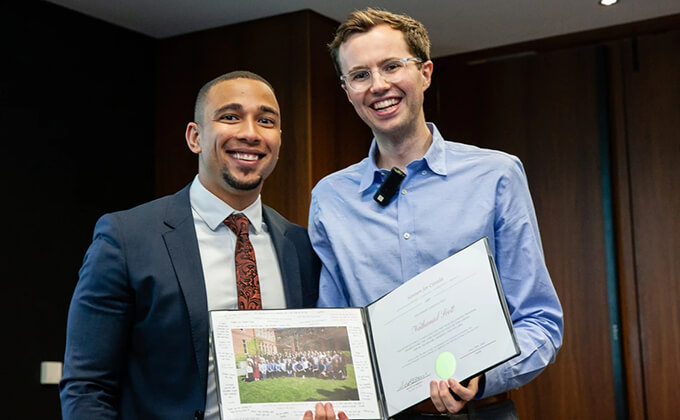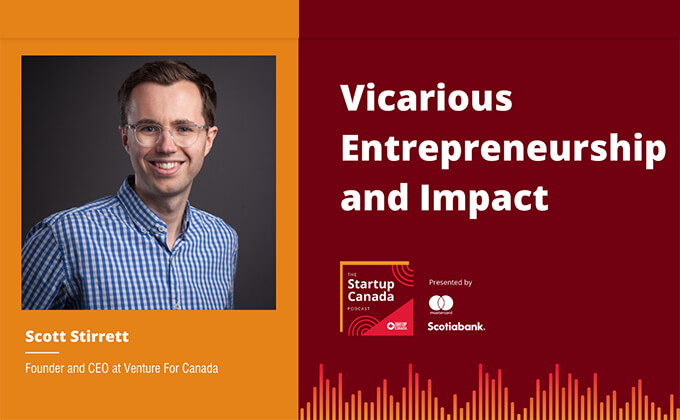Scott Stirrett
Venture for Canada
Toronto, ON

Sector Impact
Children & Youth
Economic Development
Education
FOSTERING CANADA’S ENTREPRENEURIAL SPIRIT — FOR EVERYONE’S BENEFIT
The Challenge: Canada’s entrepreneurial spirit is lacking. As a country, we are risk averse and short on the skills we need to identify and act on opportunities to create social and economic value. What’s more, marginalized communities have historically been excluded from entrepreneurship. The result? Canada is falling behind and lacks the innovation, labour productivity, and ambition to tackle major challenges like climate change and barriers to Reconciliation.

The Solution: With Venture for Canada (VFC), Scott Stirrett is equipping young Canadians with the resources they need to develop entrepreneurial skills, with a focus on communities underrepresented in entrepreneurial ecosystems. By fostering entrepreneurship and catalyzing the growth of small business in Canada, VFC is creating a more robust, prosperous, and economically inclusive country — one equipped to tackle our most pressing problems.
Transforming Canada’s entrepreneurial landscape
Everyone in Canada needs to be more entrepreneurial, says Scott Stirrett.
But Scott, the founder and CEO of Venture for Canada (VFC), doesn’t mean that every Canadian needs to launch a multinational startup. Rather, he envisions a country where everybody has the skills to identify and act upon opportunities to create value for others — in business, public policy, education, entertainment, or any sphere that creates positive impact.
“As the world becomes more volatile and uncertain, entrepreneurial skills like creativity, collaboration, critical thinking, and navigating uncertainty are becoming increasingly important,” says Scott. Through VFC, he’s actively working to create an entrepreneurial culture in Canada, one that will allow us to face and address wicked problems like climate change, barriers to Reconciliation, a stagnant economy, inequality, and an aging population, among others. Venture for Canada alumni are creating impact across the country, whether that is developing large-scale energy projects with First Nations or raising tens of millions of dollars to build leading technology companies.
“Research shows that the best way to learn how to be entrepreneurial is to work in a small business, where you can get practical, hands-on experience problem-solving in a variety of settings,” says Scott. To that end, VFC facilitates a variety of paid, work-integrated learning opportunities that support both youth and the small businesses that employ them. In 2022 alone, VFC facilitated 3,900 work-integrated learning experiences at more than a thousand Canadian startups and small businesses.
Accessibility and inclusion are core pillars in VFC’s philosophy. As Scott points out, it’s much easier to be entrepreneurial if you have access to capital, mentors, networks, safety nets, and other resources historically less accessible to marginalized communities. In 2022, 71% of VFC’s program participants identified as racialized, 52% identified as women, and 9% identified as 2SLGBTQ+. Within their employer network, 47% of the businesses VFC supports are majority owned by women and 17% are majority owned by people who identify as racialized.
As it grows, VFC is broadening its vision to develop partnerships with Canadian colleges and universities, as well as with governments at all levels to explore how policy can best support entrepreneurs. Within a decade, Scott aims to reach 25,000 young Canadians annually with VFC programming. His overarching vision? “A Canada that is more economically inclusive and prosperous, more ambitious and risk tolerant, and willing to try new ideas that benefit everyone.”



